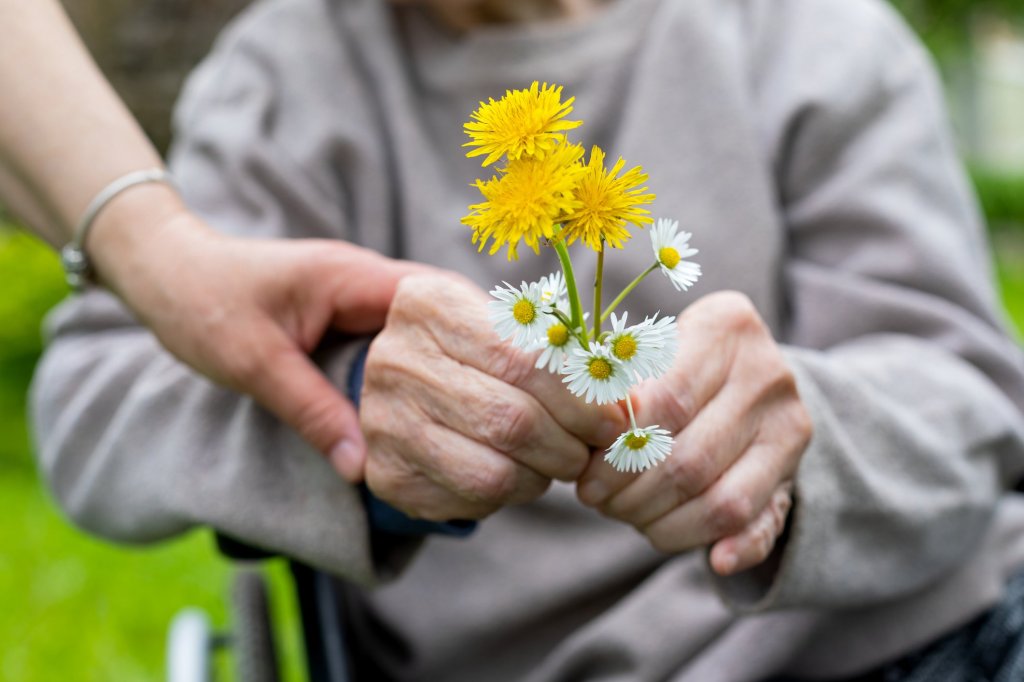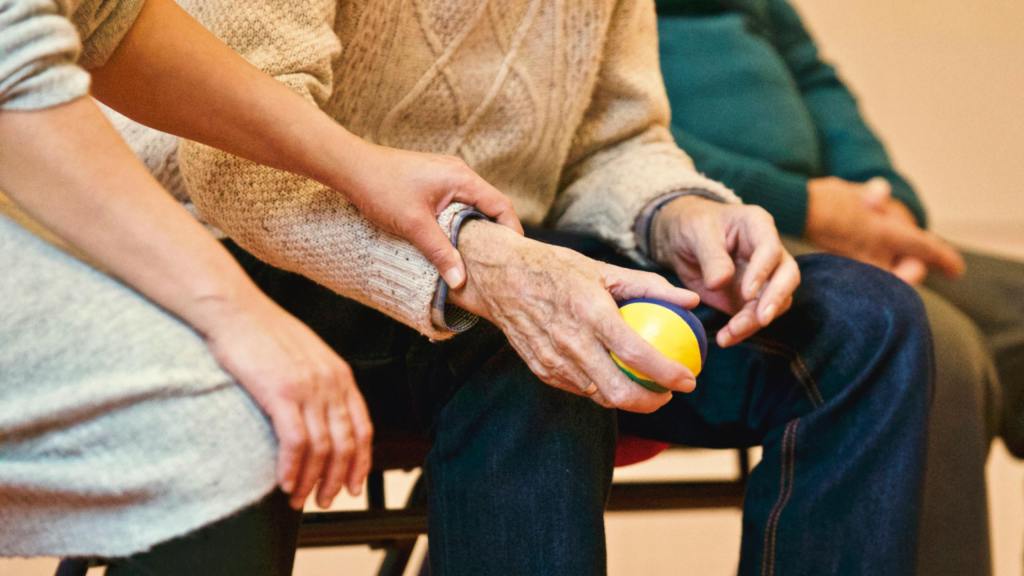
10 of the best free resources for dementia caregivers
Dementia Caregiver Support Groups
Support groups are some of the best resources available to dementia caregivers. Connecting with other dementia caregivers who are going through similar journeys and experiences helps caregivers feel as though they’re not alone. Plus, other caregivers are often excellent sources of advice for dealing with specific caregiving situations. The Alzheimer’s Association offers a searchable database of support groups, making it easy for caregivers who want to join an in-person group to find a support group in their local area. For caregivers who prefer online interactions or those who don’t have the time or ability to attend in-person meetings, ALZConnected and Caregiver Nation are online support communities available 24/7.The Alzheimer’s Association’s 24/7 Helpline
When you’re in the midst of a crisis, dementia caregivers can call the Alzheimer’s Association’s Helpline 24 hours a day, 7 days per week to talk to master’s-level clinicians and specialists. This helpline offers crisis guidance, decision support, education, information on local programs and services, information on financial and legal resources, treatment options, and care decisions. There’s also a live chat option available from 7:00 a.m. to 7:00 p.m., Monday through Friday. The Alzheimer’s Association offers plenty of downloadable resources, too, covering many questions and concerns dementia caregivers face.Family Caregiver Alliance – Dementia Caregiver Resources
The Family Caregiver Alliance provides an abundance of resources for caregivers providing care to people with a variety of health conditions and disabilities. The Dementia Caregiver Resources section is a trove of helpful guides, tips sheets, and caregiver stories to help caregivers navigate the journey of caring for a loved one with dementia. The Family Caregiver Alliance also offers online support groups for caregivers to connect with others who are facing similar struggles and those who can offer advice for overcoming common caregiving challenges.The National Alliance for Caregiving – Brain Health Conversation Guide
The National Alliance for Caregiving offers support and resources for all caregivers, but dementia caregivers will find the Brain Health Conversation Guide, developed in collaboration with the Alzheimer’s Foundation of America, particularly helpful for navigating those difficult discussions about memory changes and cognitive health. Other guidebooks, including a Spanish version of the Brain Health Conversation Guide, can be found here.U.S. Department of Veterans Affairs – Dementia Care
For dementia caregivers providing care for a veteran, the U.S. Department of Veterans Affairs offers helpful information on Alzheimer’s disease and other dementias, as well as information on the services and resources available to veterans living with dementia. Services provided include support for both veterans and their caregivers.Cleveland Clinic – Healthy Brains
The Cleveland Clinic’s Healthy Brains initiative offers individualized brain health assessment tools, lifestyle tips, news on the latest developments in research and medicine, and more. This interactive resource is useful for both caregivers and those who are living with Alzheimer’s disease or another form of dementia, offering both tips for reducing the risk of developing dementia as well as helpful resources for caregivers, such as information on the healing power of pets, the latest clinical trials, and more.Alzheimer’s Foundation of America – Caregiving Resources
The Alzheimer’s Foundation of America provides numerous helpful resources for Alzheimer’s caregivers, including a free helpline, dozens of fact sheets, free community classes, webinars, and more. The AFA also offers a National Memory Screening Program, which provides free, confidential memory screenings throughout the United States on an ongoing basis. The program has screened more than 5 million people across the country to date.Caregiver Action Network’s Family Caregiver Toolbox
For helpful tips and information on every aspect of caregiving, the Caregiver Action Network’s Family Caregiver Toolbox is a go-to resource. While it’s not specifically focused on dementia caregivers, there’s plenty of information any caregiver can use, as well as resources on caring for a loved one with Alzheimer’s disease. CAN’s Care Community is an online support community with several forums including a group for Alzheimer’s caregivers, a forum for caregivers coping with depression, a group for caregivers to discuss tips and strategies for dealing with healthcare providers, and more.Dementia Friendly America
Dementia Friendly America is “a national network of communities, organizations and individuals seeking to ensure that communities across the U.S. are equipped to support people living with dementia and their caregivers.” DFA offers a robust list of resources for people living with dementia, their loved ones, and dementia caregivers, as well as toolkits for those who want to advocate in their own communities.Memory Cafés
Located in hospitals, libraries, senior centers, and other locations, memory cafés offer support for those with dementia and their caregivers to help them combat social isolation and connect with others who are coping with similar circumstances. The Memory Café Directory lists hundreds of memory cafés located throughout the U.S.More insights like this:
-

Delirium vs. Dementia: Causes, Symptoms, Treatments, and Preventative Measures
Read more: Delirium vs. Dementia: Causes, Symptoms, Treatments, and Preventative Measures5 Key Things Family Caregivers Need to Know About Delirium and Dementia Onset and Course Are Key Clues That Caregivers Should Watch Closely Delirium develops suddenly (hours or days) and often fluctuates; dementia progresses gradually over months or years. Acute changes in thinking or attention should trigger urgent medical evaluation. Delirium and Dementia…
-

What Caregivers Should Know About Early-Onset Alzheimer’s
Read more: What Caregivers Should Know About Early-Onset Alzheimer’sSymptoms, Stigma, Diagnosis, and Treatment Early-onset Alzheimer’s disease, also known as younger-onset, is the development of Alzheimer’s symptoms between the ages of 30 and 65. A diagnosis is relatively rare at a younger age, and while over 6 million people in the United States are living with Alzheimer’s disease, the true prevalence of early-onset is uncertain.…
-

15 Tips on Transitioning a Loved One to Memory, Dementia, or Alzheimer’s Care
Read more: 15 Tips on Transitioning a Loved One to Memory, Dementia, or Alzheimer’s CareAs a part of your journey caring for someone with Alzheimer’s or another form of dementia, there may come a time when the effects of the disease become too much for a caregiver to handle, and one must seek alternative care options. When deciding the right time to transition your loved one to…